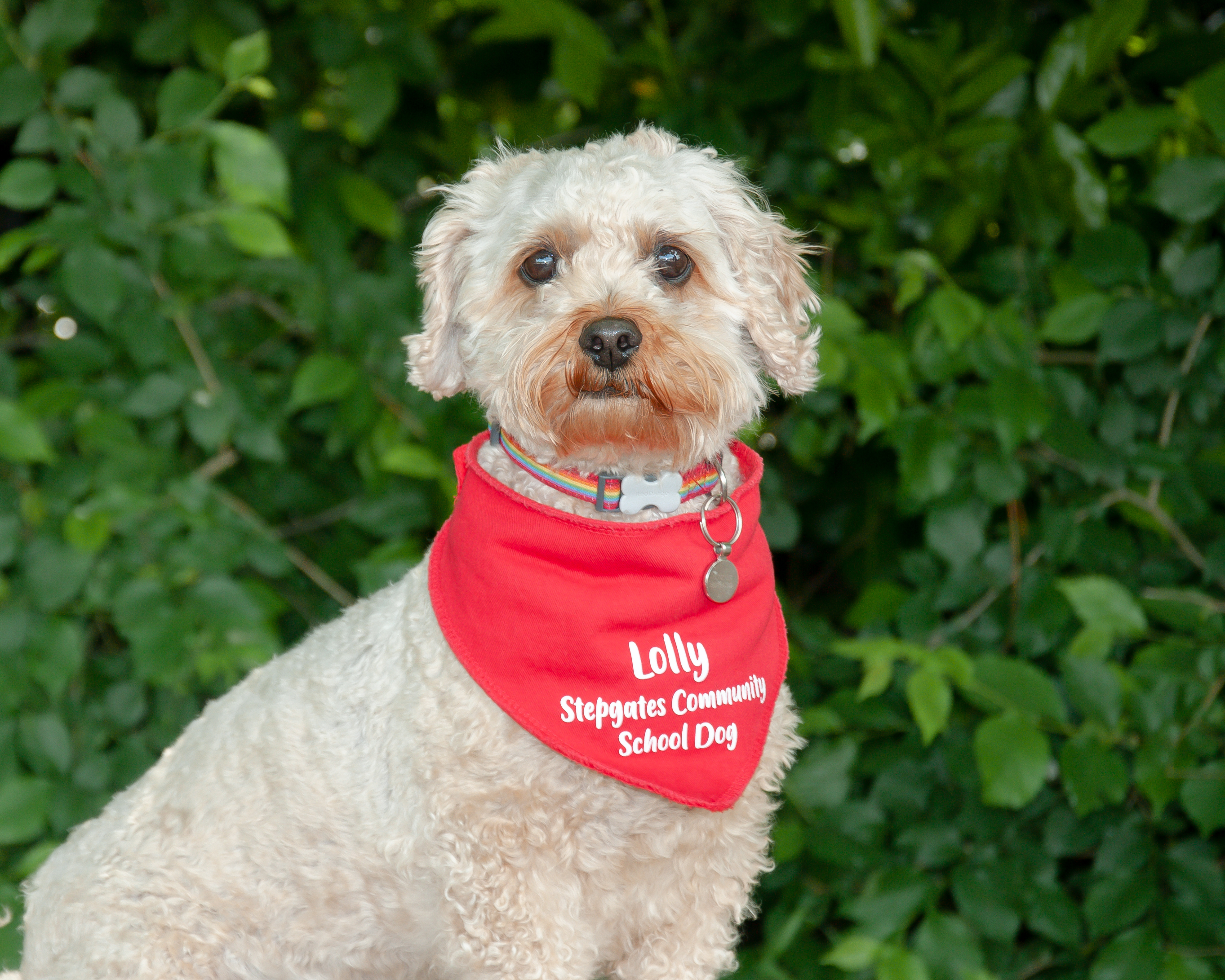School Dog - Lolly
"We are very lucky to have a school dog, Lolly."




SCHOOL DOG FREQUENTLY ASKED QUESTIONS (FAQs)
Q Who is the legal owner of the dog?
The legal owner of Lolly is Mrs Ford.
Q Was the puppy from a good home?
Yes, both parents of our puppy were present in the family home and had health checks and certificates.
Q Will the dog be a distraction?
Lolly will be kept primarily in Mrs Ford’s office but will be integrated into daily aspects of school life which will allow the children and staff to reap the benefits a school dog will bring. The situation will be closely monitored and adjusted if there is any concern that Lolly is distracting children from their learning.
Q Has a risk assessment been undertaken?
Yes, we have carefully considered having a dog in school and sought advice from many sources, including other schools that successfully have a school dog. We have a full risk assessment in place.
Q Will the dog be trained?
Mrs Ford took Lolly to regular obedience classes, when she was a puppy, and recently undertook a behaviour assessment with a specialist to ensure her suitability to be in school.
Q How will the dog be toileted to ensure hygiene for all?
In the interests of health and hygiene, our school dog will be toileted when taken out for short walks off-site.
Q How will the dog’s welfare be considered?
Mrs Ford will be working closely with professionals to ensure Lolly is settled well into school and that the medical and emotional needs of her are met. Every effort will be made to ensure that Lolly benefits from being in school as much as the staff and children.
Q How will this be managed where children have allergies?
Children will not need to touch Lolly, which will relieve the possibility of allergic reactions. We already successfully manage a number of allergies at school and this will be no different for any children or adults who have an allergy to dogs. Cavapoos have lower allergen levels than many breeds and shedding is minimal. Individual needs will always be met and we are happy to work with parents to put additional measures in place for individual allergies.
Q What if my child is frightened of dogs?
Access to Lolly will be carefully managed, we seek permission from parents allowing their children close contact with her. We will happily work with any parents of children who are frightened of dogs to alleviate their fears and to gain from the benefits a close bond with a dog can bring.
Q What would a typical day look like?
Lolly will come into school with Mrs Ford and have a quick early morning walk around the grounds. She will be attending assemblies, visiting classrooms and going out for some playtimes, as appropriate. She will be used as a reward and/or incentive for positive learning behaviours, attitudes to learning and anything else deemed appropriate. She will, at times, accompany Mrs Ford outside at the beginning and end of the day to greet and say goodbye to everybody.
Please note, this does not mean that other dogs will be allowed onto the school site.
Q What proven benefits are there to having a dog in school?
There are numerous research papers outlining the positive impact of dogs in school which had led to Department for Education and well know educationalists recommending their role.
For example:
University of Buckingham vice-chancellor, Sir Anthony Seldon, backed the use of dogs as a way of reducing stress in schools and universities.
“The quickest and biggest hit that we can make to improve mental health in our schools and to make them feel safe for children is to have at least one dog in every single school in the country.” Sir Anthony Seldon.
Former Education Secretary, Damian Hinds, endorsed his call, saying more schools seemed to have ‘wellbeing dogs’ and that ‘the pets can really help children in school.’
Please find below website links on the benefits of dogs in schools.
